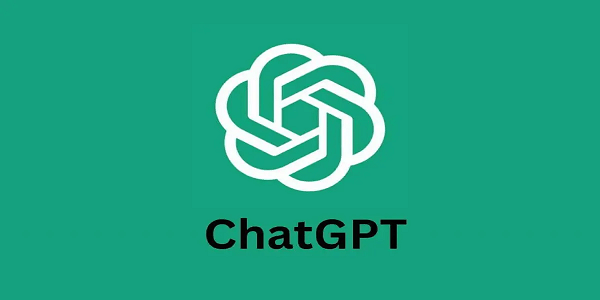Is ChatGPT blocked in Italy?ChatGPT, an Artificial Intelligence (AI) chatbot, was launched publicly on 30th November 2022 by OpenAI. On 31st March 2023, the data regulator of Italy, Garante, temporarily banned ChatGPT over data security concerns. However, the Italian government later restored the services in less than a month. The decision comes after the startup responded to concerns about user data privacy and security on the Artificial Intelligence platform. 
What is ChatGPT?ChatGPT is an Artificial Intelligence (AI) chatbot that can produce incredibly human responses to text queries using the Generative Pretrained Transformer (GPT) family of language models. This chatbot is developed by a San Francisco-based AI startup, OpenAI. ChatGPT utilizes both supervised learning and reinforcement learning along with human trainers in order to improve the overall performance of the model. ChatGPT immediately became incredibly famous in many countries after its release. A large amount of data is required to train the large language model. The generative text system can be created with any available data scraped from the web, social network posts, books, and other means. Some of the data collected is the personal information we share online. In Europe, unlike the US, publicly available personal information is still recognized as personal information which belongs to individuals. This data is now creating problems for OpenAI. Earlier, some media companies and artists filed complaints against generative AI developers for using their graphical work without permission. Why was ChatGPT banned in Italy?In Europe, the General Data Protection Regulation (also known as GDPR) is responsible for the security of the personal data of citizens. GDPR is embodied in national data protection laws of all European Economic Area countries. National data protection authorities control adherence to the law. While European Parliamentarians oppose the content and reach of the EU AI Act, there are few regulators that say that the predominant laws, like GDPR, provide users control over their data. They can be applied to the recklessly evolving generative AI companies. The Italian data privacy regulator Garante per la Protezione dei Dati Personali indicted OpenAI of failing to check the age of ChatGPT users and the lack of any legal cause that validates the immense collection and storage of personal information in order to train the chatbot. Garante of Italy highlighted four problems that ChatGPT violated under the GDPR:
Having no offices in the European Union, OpenAI had yet to respond to regulators; instead, OpenAI took ChatGPT offline in Italy on 31st March. Moreover, the company did not respond to questions from other European regulators concerning prospective violations in their countries. In order to collect the personal data of individuals in a GDPR-compliant way, there are two options:
The company neither gets users' consent nor informs users about their data collection. It became hard to prove "legitimate interest" in the data collection and its usage, which is not the case where it could be applied. Even if the Privacy Policy of OpenAI depends upon "legitimate interests" when it "develops" its service, the Privacy Policy does not illustrate the legal reasons for collecting and utilizing the personal information of individuals in the training process. However, not all decision-makers were in favor of the ban. Italy's transport minister and the leader of the League Party, Matteo Salvini, called the ban "hypocritical" and disproportionate". Note: Italy became the first European country to ban a chatbot powered by artificial intelligence (AI), but probably not the last. Privacy regulators in Germany, France, and Ireland have reached out to the regulator of Italy to find out more about the root of the ban. They could follow up with the Italian Garante. A spokesperson for the Data Protection Commissioner of Ireland said that they would coordinate with all European Union (EU) Data Protection authorities concerning the matter. How ChatGPT returned to Italy after Ban?On Friday (28th April 2023), the developers of ChatGPT said that the Artificial Intelligence (AI) chatbot was available again in Italy after the company met the demands of the regulator, who temporarily blocked it over data privacy issues. OpenAI said it fulfilled several prerequisites that the Italian data protection authority wanted to be satisfied by a 30th April deadline to lift the ban on the AI software. "ChatGPT is available again to our users in Italy," San Francisco-based OpenAI said by email. "We are excited to welcome them back, and we remain dedicated to protecting their privacy." After Italian Garante raised some problems, OpenAI addressed and clarified them. The measures include:
Some users from Italy also shared screenshots of the modifications made in the chatbot, including a menu button asking for the user's age and links to the updated privacy policy and training data help page. The Garante said in a statement that it "embraces the measures OpenAI implemented"and encouraged the company to concede with two other demands for an age-verification system and a promotion campaign briefing Italians about the backstory and their right to opt out of data processing. Infrastructure Minister Matteo Salvini, on Instagram, wrote appreciatively of the return of ChatGPT and said that his League party "is pledged to serving start-ups and development in Italy." Other regulators are now examining closer at such Artificial Intelligence (AI) systems, with Canada's privacy commissioner and France's data privacy regulator investigating after receiving complaints about ChatGPT.
Next TopicHow to Use Voice Control for ChatGPT
|
 For Videos Join Our Youtube Channel: Join Now
For Videos Join Our Youtube Channel: Join Now
Feedback
- Send your Feedback to [email protected]
Help Others, Please Share









